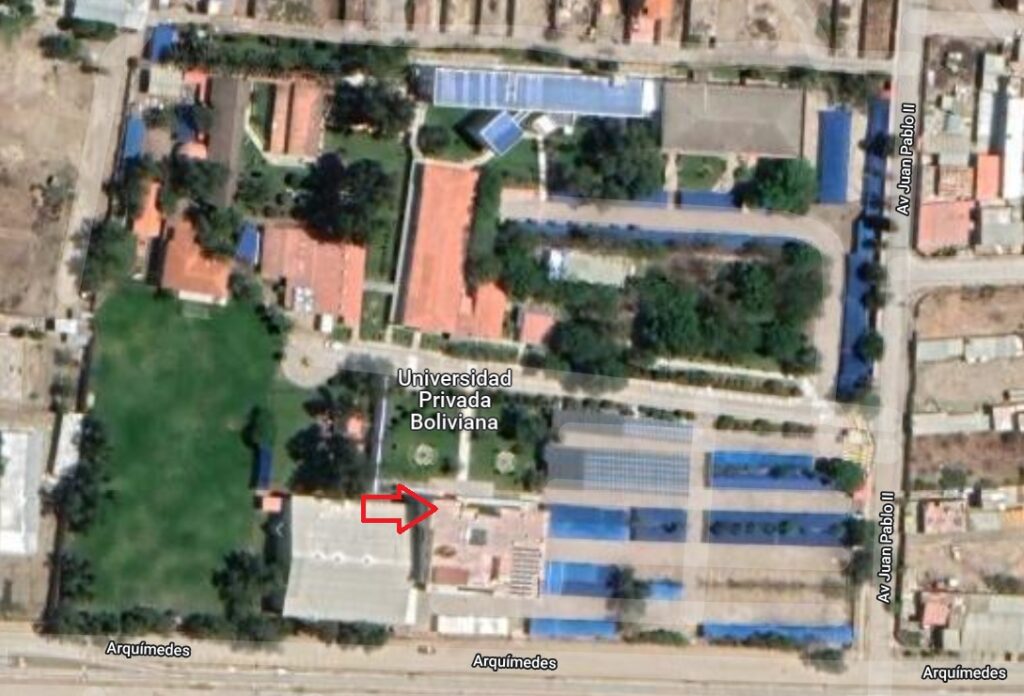The project aims at developing 10 Remote Laboratories in the following Energy areas:
- Heat transfer and Thermodynamics
- Hydrogen
- Distributed generation
- Solar & Photovoltaic
- Hydropower
- Bioenergy
- Biomass
Remote Labs @ UPB
The UPB Team is developing two Remote Laboratories related to Solar Energy:
- Spectrometry Remote Laboratory
- Solar Radiation measurements Remote Laboratory
Spectrometry Remote Lab
The remote lab consists of a low-cost smartphone spectrometer, which includes a miniaturized spectrometer, an App for control, data collection, and storage of the spectra obtained. Students will remotely control and modify different parameters, collect and analyze spectral data. In addition, they will be able to obtain spectra from different light sources (LED and fluorescent lamps) with a variety of color temperatures.
We are developing low-cost technology for remote laboratories.
Low-cost Spectrometry Remote Lab Kits
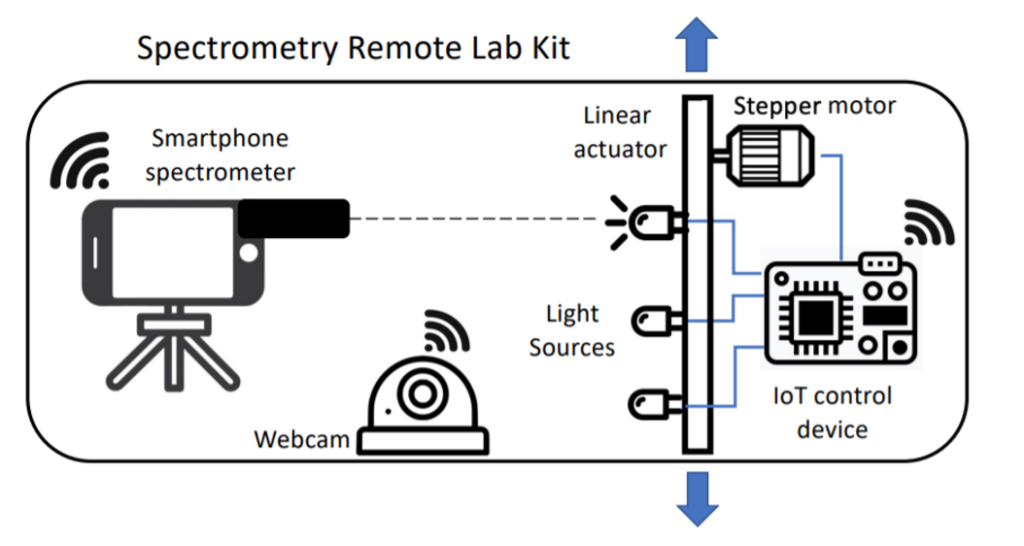
Our Spectrometry Remote Lab Kit is wirelessly connected to the Remote Lab Web App, allowing students to analyze spectral data in real-time.
Remote Lab Web App
The Web App uses modern Web technology allowing students to remotely control the spectrometer, a web cam, and the light sources to obtain spectral curves.
The student can store the session data (spectral data, images, and notes) for post-experiment analysis.
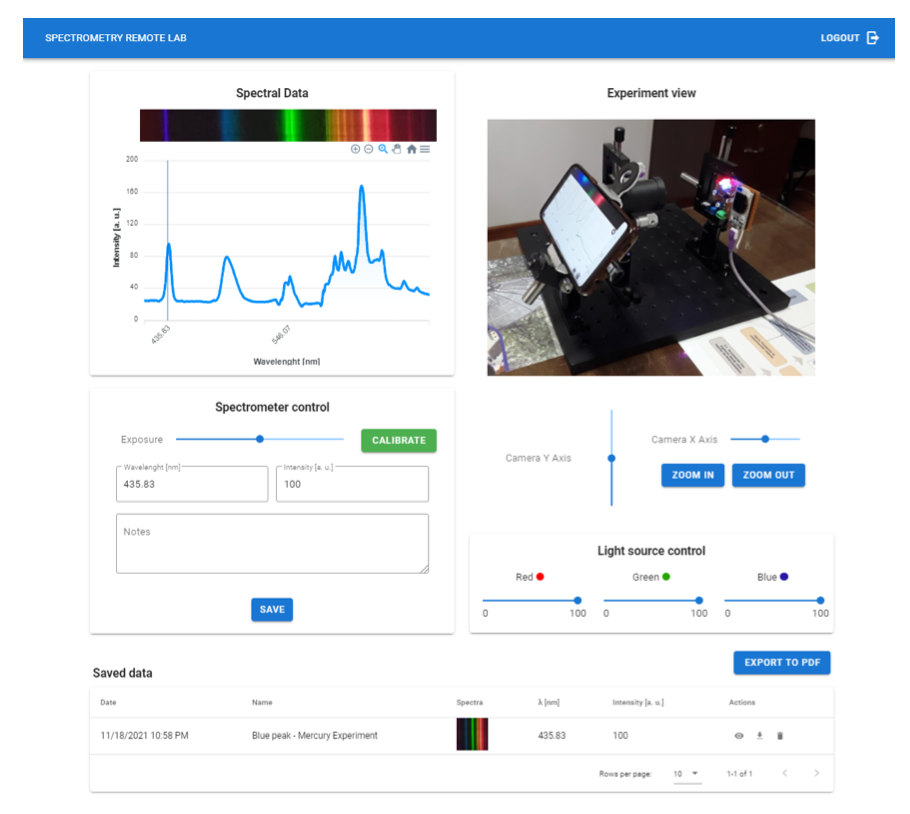
Solar Radiation Measurement Remote Lab
The remote lab will allow the learner to obtain global, direct and diffuse solar radiation by remotely controlling a shadowing mechanical system. The learner will be able to parametrize the data collection and compare theoretical results with real measurements, which depends on the geographical location and the altitude (i.e., m.a.s.l.). We will develop a remotely controlled mechanical system, with two pyranometers (UVA and integral sensors) located in at least two of our campuses.
Measuring solar efficiency at 3 different altitudes
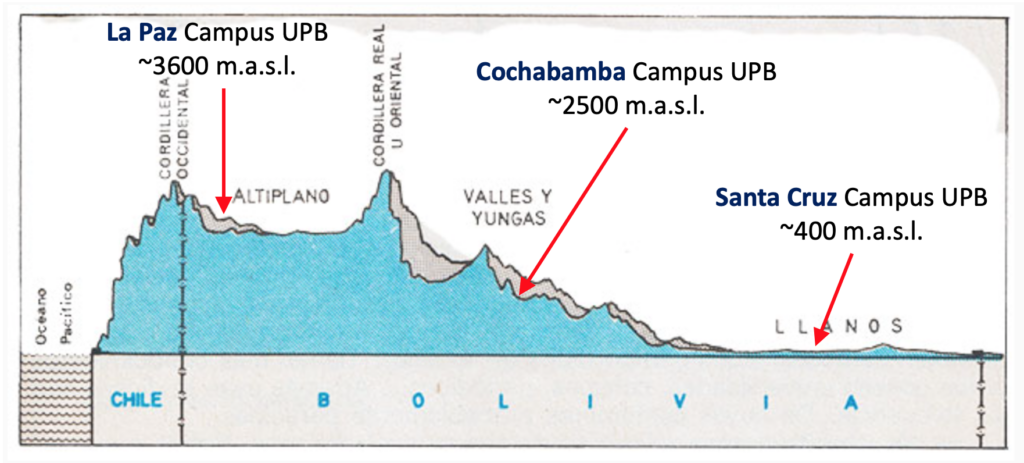
We are deploying the solar remote lab equipment in our 3 campuses in 3 different cities in Bolivia with 3 altitudes.
This will allow the learners to measure and experiment the impact of the altitude in the energy efficiency of Photovoltaic Solar panels.
This will also allow learners to compare with other results with other solar remote laboratories at the sea level from our sister project EUSL (in Greece and Sri Lanka).
Solar measurements
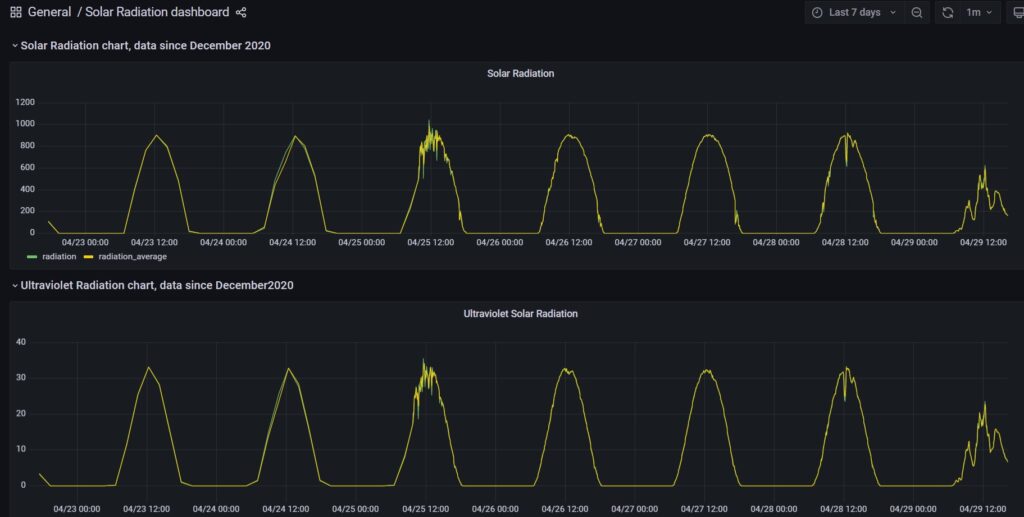
We are collecting information about the solar resource since December 2020 in our Campus in Cochabamba (2500 m.a.s.l). You can find here the data collected with our pyranometers.
Equipment:
a) Solar radiation: CMP6 Pyranometer (KIPP & ZONEN). Spectral range: 285-2800 nm
b) Ultraviolet solar radiation: LP UVA 02 (Delta Ohm). Spectral range: 315-400 nm
Location (Cochabamba): 17°23’57.0″S 66°13’06.7″W
Thanks to the EUBBC-Digital, we will be able to deploy solar measuring equipment in the 3 campuses of our University to allow students to analyze the collected data and run experiments with the remote labs.
